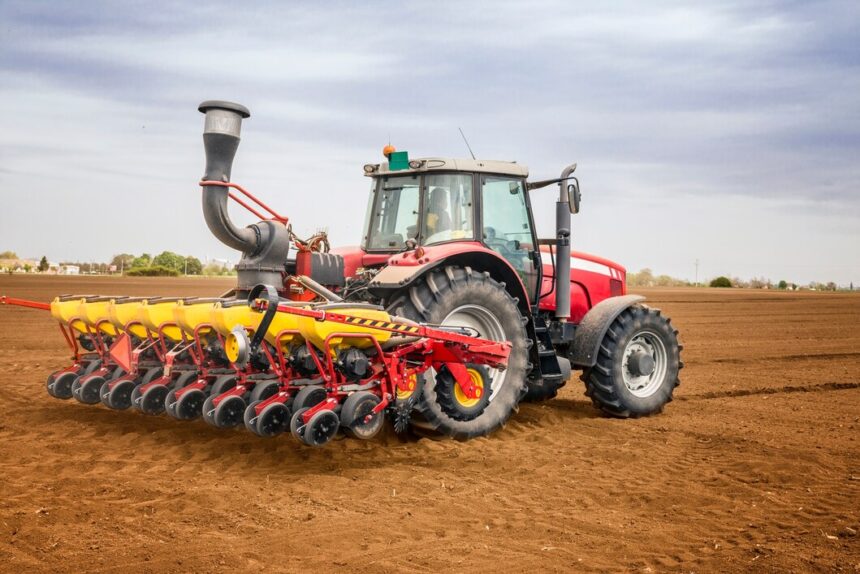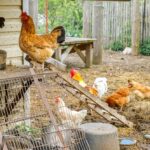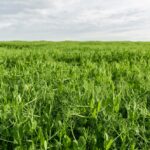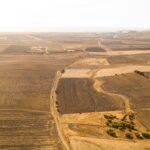Soil preparation is one of the most critical steps in successful farming. Whether you’re growing crops or establishing a new farm, the right tools can make the task more efficient, reduce labor, and enhance the health of the soil for better yields. In South Africa, where agricultural conditions vary from region to region, having the right tools for soil preparation is essential for optimizing soil health and productivity. Here’s a guide to the essential tools every South African farmer needs for effective soil preparation.
1. Tractor
A tractor is one of the most versatile and essential tools for soil preparation on a farm. It serves as the backbone for various tasks, including plowing, tilling, and pulling other attachments. Tractors are particularly important for large-scale farms where manual labor is not feasible.
- Uses: Plowing, harrowing, discing, tilling, hauling
- Why it’s essential: A tractor makes large-scale soil preparation tasks quicker and more efficient, saving both time and manpower.
2. Plough (or Plow)
The plough is one of the oldest and most important farming tools. It is used to turn over the soil, bringing nutrients to the surface and creating a loose, aerated environment for plants to grow. Plowing is particularly important for breaking up compacted soil, incorporating organic material, and controlling weeds.
- Uses: Turning soil, breaking up hard layers, incorporating organic matter
- Why it’s essential: It prepares the soil for further tilling and planting by loosening the earth and creating a fine seedbed.
3. Tiller (Rotary Tiller)
A tiller, also known as a rotary tiller or cultivator, is a motorized tool used to till the soil to a finer texture. It’s smaller than a tractor and is ideal for preparing garden beds or smaller plots of land. Tillers are commonly used for breaking up soil after plowing.
- Uses: Breaking up clumps, aerating the soil, mixing organic matter, and preparing seedbeds
- Why it’s essential: It provides a fine seedbed that allows for good seed-to-soil contact, improving seed germination.
4. Harrows
Harrows are tools that help in breaking up clods of soil, leveling the field, and covering seeds after planting. They are often used after plowing to smooth out the soil surface and ensure that the soil is loose enough for crops to grow.
- Uses: Breaking down soil clumps, leveling the field, smoothing the soil surface
- Why it’s essential: Harrows ensure that the soil is well-prepared for planting and that any seedbed is uniform.
5. Disc Harrow
The disc harrow is an improved version of the traditional harrow. It uses a series of rotating discs to cut and break up soil, especially in fields with heavier, more compacted soils. Disc harrows are especially effective for working on tough or clay-heavy soils, which are common in many parts of South Africa.
- Uses: Breaking up compacted soil, cutting through tough layers, aerating soil
- Why it’s essential: Disc harrows are ideal for handling difficult soil types and preparing fields for planting.
6. Hand Tools: Shovels, Hoes, and Rakes
While machinery is essential for large-scale farms, hand tools are indispensable for smaller farms or areas where precision is required. A variety of hand tools, such as shovels, hoes, and rakes, are used for soil preparation in smaller plots or for tasks that require detailed work.
- Uses: Digging, hoeing, weeding, leveling soil, mixing compost or fertilizers
- Why it’s essential: They offer versatility and are ideal for smaller plots, garden beds, or for tasks requiring closer attention.
7. Soil Testing Kits
Soil testing is a crucial part of soil preparation. Understanding your soil’s pH, nutrient levels, and structure helps you make informed decisions about fertilization and soil amendments. A soil test kit allows you to determine what the soil needs to maximize crop productivity.
- Uses: Testing soil pH, nutrient levels (nitrogen, phosphorus, potassium), and texture
- Why it’s essential: Proper soil testing helps in applying the right fertilizers and amendments, avoiding overuse of chemicals, and ensuring soil health.
8. Compost Spreader
Compost is a key organic matter that enhances soil structure, water retention, and nutrient content. A compost spreader helps in evenly distributing compost over the soil, ensuring that the land receives an adequate amount of organic material.
- Uses: Spreading compost, manure, or organic fertilizer
- Why it’s essential: Compost spreaders improve the soil’s fertility and structure, promoting healthy plant growth while maintaining sustainable farming practices.
9. Subsoiler
A subsoiler is a tool used for breaking up hardpan layers beneath the soil surface. Hardpan is a compacted layer of soil that restricts root growth and water infiltration. The subsoiler can help break up this layer without disturbing the upper soil structure, allowing roots to penetrate deeper.
- Uses: Breaking hardpan, improving water infiltration, and root penetration
- Why it’s essential: It improves the soil’s overall drainage and root accessibility, especially in clay-heavy soils often found in parts of South Africa.
10. Fertilizer Spreader
After soil testing, adding fertilizers is often necessary to boost soil fertility. A fertilizer spreader is used to evenly distribute fertilizers over large areas. These can be either broadcast spreaders (which scatter fertilizer over the surface) or drop spreaders (which deposit fertilizer in specific rows).
- Uses: Applying fertilizers and soil amendments evenly
- Why it’s essential: Proper fertilizer application ensures plants get the nutrients they need to grow without over-applying, which could harm the environment.
11. Watering Equipment (Irrigation Systems)
Watering systems such as drip irrigation, sprinkler systems, or soaker hoses are important for providing adequate water to your crops during soil preparation and growing stages. Proper irrigation helps the soil retain moisture and promotes seed germination.
- Uses: Watering crops, maintaining soil moisture
- Why it’s essential: Watering systems provide a consistent and efficient way to water crops, especially in dry regions of South Africa.
Soil preparation is the foundation of successful farming, and having the right tools is essential for ensuring your farm is ready for planting. From large-scale machinery like tractors and ploughs to essential hand tools for smaller plots, each piece of equipment serves a unique role in ensuring soil health and fertility. For South African farmers, investing in the right tools for soil preparation can improve crop yields, reduce labor, and increase farm profitability.
Join 'Farmers Mag' WhatsApp Channel
Get the latest Farming news and tips delivered straight to your WhatsApp
CLICK HERE TO JOIN






